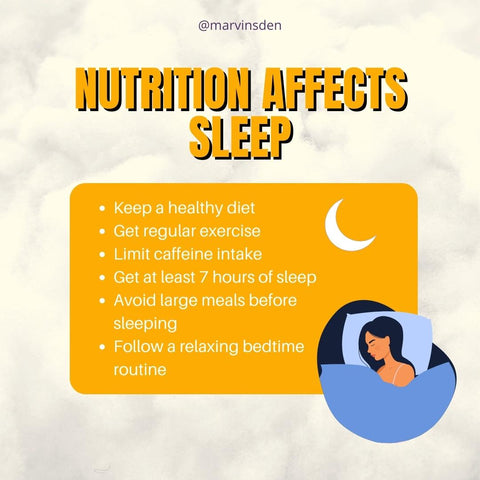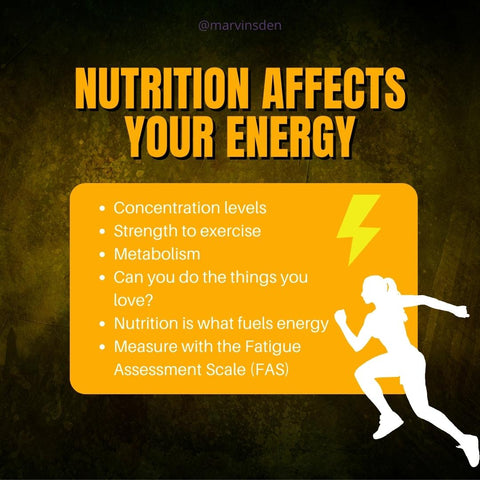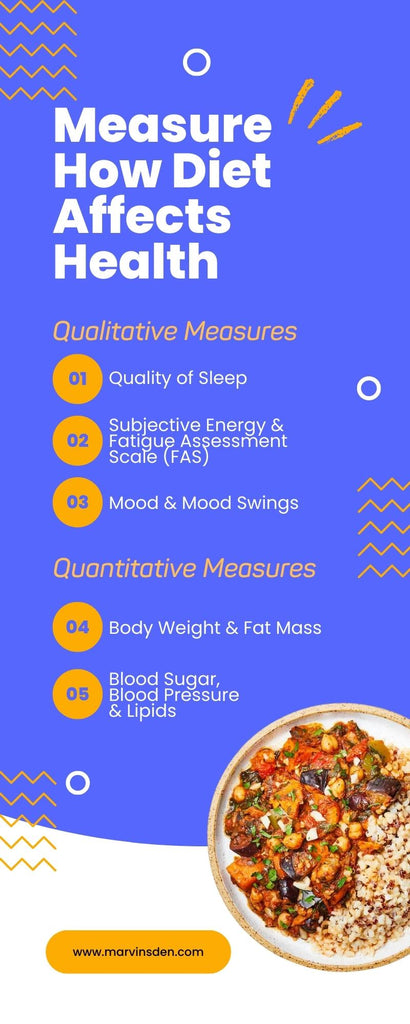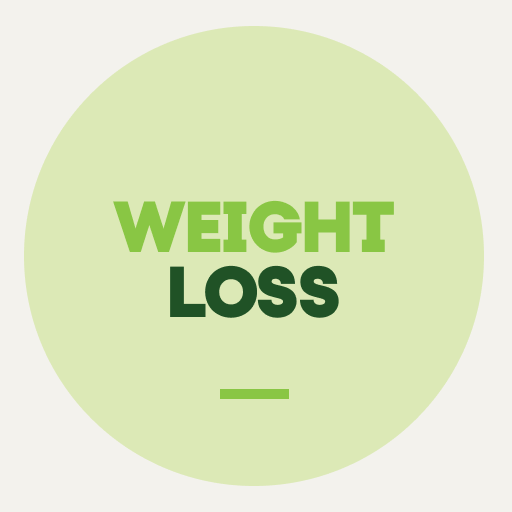Am I eating well? How to know if your nutrition is on point. Nutritionist answers
Rory Batt MSc: Nutritionist
This is a really important topic, as it forms the basis of your goals and the direction you are headed in terms of health and wellness.
Some people are more sensitive than others when it comes to how their food and diet is affecting them.
You could say the people who are ‘canaries’ are lucky or unlucky, as they tend to be able to pick up on subtleties as to how things affect them.
This is why we’re going to cover both qualitative and quantitative aspects of tuning into your health, and how your diet is playing a role.
Qualitative refers to things like your energy levels, sleep, mood and general experience of life.
Quantitative refers to things like fat mass, blood sugar, cholesterol and things you can generally measure and objectively quantify.
Canaries are usually good at picking up on how they feel, in subjective terms. But for the others the more objective measures are a helpful guide.
So we’re going to cover a few ways you can tune into your experience of health, so you can understand how your diet is affecting you.
Qualitative Measures in nutrition
Sleep

Sleep really is the best medicine, as it makes everything better. Getting good sleep is often the lowest hanging fruit in terms of where to direct your effort for the maximum pay off for how it will affect your life.
Bad sleep can derail your energy, mood, performance athletically and at work, as well as mess up your appetite. So if there's one thing to focus on first, it's often getting a good night's sleep.
It’s easy to tell if you’ve been getting good sleep as you can FEEL it. As all of the above is flowing well.
You can also tell how your diet is affecting you if you’re not getting good sleep. Sleep is one of the giveaways that tells you that your diet is positively or negatively affecting your health.
If you’d like to get an idea of how your diet may affect your sleep, skip dinner one night and see. After a week of eating cleaner you’ll also begin to experience better sleep.
It’s easy to feel the difference after cutting out junk foods and snacking, as you’ll wake up feeling more refreshed.
You can also turn sleep into a quantitative measure, by using a sleep tracker like an Oura ring to measure your duration, depth and quality (score) of sleep.
Subjective Energy

Another easy way to tune into how your diet is affecting you is your energy. Energy is something super subjective, so it varies for everyone.
But this is your experience of being wealthy. Energy is your own personal currency. The more of it you have the wealthier you are.
So you can start to measure wealth in terms of energy, and enjoying a richer life is that of abundant energy.
Ask yourself what is your current experience of vitality? Do you have enough energy to perform the things you enjoy?
How has your energy changed overtime? How has it varied over the last year, two years, five years?
How does it vary day to day?
You can also measure energy in questionnaires such as the Fatigue Assessment Scale (FAS) and the Fatigue Severity Scale (FSS).
Subjective Mood

Your mood is a great barometer to measure how your diet is affecting you. It may not come easily at first, because obviously there are thoughts and emotions that affect and constitute mood.
But food does have quite a noticeable effect on mood for a lot of people. Changing your diet is not going to solve your problems.
It is however going to eliminate one problem - and that is feeling crappy from eating crappy foods.
You would be surprised how much diet can help, and it will become obvious when you start to play around with it and see.
A healthier diet can to some degree impact thoughts, emotions and quality of life in a positive way. It won’t solve a bad mood from lets say hating your job, but it will give you the clarity and resources to maybe find a new one for example.
Start by removing a few foods you suspect may be making you feel bad, and assess your mood after a week or so.
The Meal Prep Market makes it super easy to make small and even big changes to your diet and lifestyle, so use resources like us to test things out!
Quantitative Measures in nutrition
These are your more obvious and traditional markers of health, and how your diet may be affecting you.
Body Weight
It’s probably no mystery that any extra body weight is related to a diet that may not be serving you as best it can.
This can be quantified by using a simple scale that can live in your bathroom.
Just be aware that body weight on its own is a slightly deceptive measure as you can’t discriminate between muscle mass and fat mass.
But you might know intuitively or by taking a look at your body which one it could be.
It’s not productive to look at the scales too much, but once every so often such as every two weeks can help.
Do it too much and it can become an obsession, and be misleading. Body weight naturally fluctuates on a day to day basis.
You also want to measure it enough so that you can make adjustments to what you are doing.
Every two weeks seems like it is enough time to notice an effect from what you are doing, but at the same time allows you to be agile and pivot based on things working / not working.
Fat Mass
You can discriminate between fat mass and muscle mass by using bioelectrical impedance - its a simple device that measures body composition based on the rate an electrical current travels through the body.
This is a good way of calculating your fat mass, so you can see how your diet is affecting your body mass.
Again good to do this alongside your body weight readings every two weeks or so. You can find one of these machines at your local gym, or doctors.
Blood Sugar
This is one which is important to measure something that may not be obvious. Imbalanced blood sugar is one of the gateways into many chronic diseases.
Healthy blood sugar regulation is important for so many things, including energy, mood, cognitive health and body weight.
Diet is one of the biggest influences on blood sugar, and there are certain common foods which can really hijack blood sugar. Although, there is quite a large degree of variation between individuals as to how they respond to certain foods.
Nonetheless, it’s usually better to eliminate refined carbs and simple carbs or to cut them down to make way for more fruits and veg.
If you have fatigue or slumps in energy it may be that you have imbalanced blood sugar.
You can easily have your blood sugar measured at the doctors, or with private health screenings. It’s good to do it a couple times a year.
Blood Pressure
Like blood sugar, blood pressure is a handy look under the hood at how diet may be affecting your health.
Although blood pressure is also and arguably more so affected by stress, nutrition still plays a part.
It’s in the foods you are eating, equally as much as the foods you aren't eating that can lead to unhealthy blood pressure.
So again, experiment with healthier choices and use those snapshots in time to measure your blood pressure and mark it against what you are doing in your life that affects it.
This iterative process will allow you to find what works for you and your body.
This is easy to measure at home with a device which you can invest in, a docs office or health center or screening company.
Blood Lipids
The levels of fats in your blood can tell you a lot about your diet and how it is impacting your metabolism.
It’s an indicator of how well certain organs may be working, as well as what level of risk they may be at in terms of damage from a poor diet.
The fats in the blood themselves aren’t dangerous, more so what they do to organs like the liver and the heart.
Blood lipids are things like cholesterol and triglycerides that can be an indicator of diabetes, heart disease and liver problems.
You can really tell if your diet is serving you or not by looking at blood lipids.
Best done at the docs or by private health screening.

Summary
So all in all we’ve discussed the ways you can assess how you diet is impacting your health in real time, and snapshots in time.
These are qualitative measures, which can easily be tapped into on a daily basis. Diet can have an almost immediate effect on your subjective experience of wellness. From as little as 1 day of clean eating to around a week.
Then there are quantitative measures which can be done periodically, as snapshots in time which can help you alter course every two weeks or so to eventually point you in the right direction around how your diet is affecting your health.
Use both of these resources to get a good idea of how your health is impacted by your diet.
You can also leverage tools like Marvins Den which make it easy to experiment with different foods, diets and ways of eating to get you to your version of better health.





